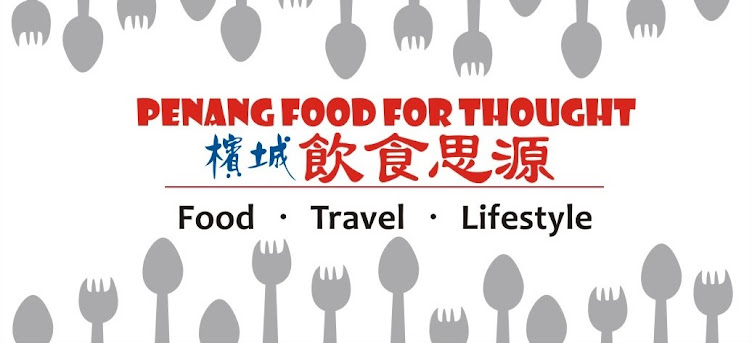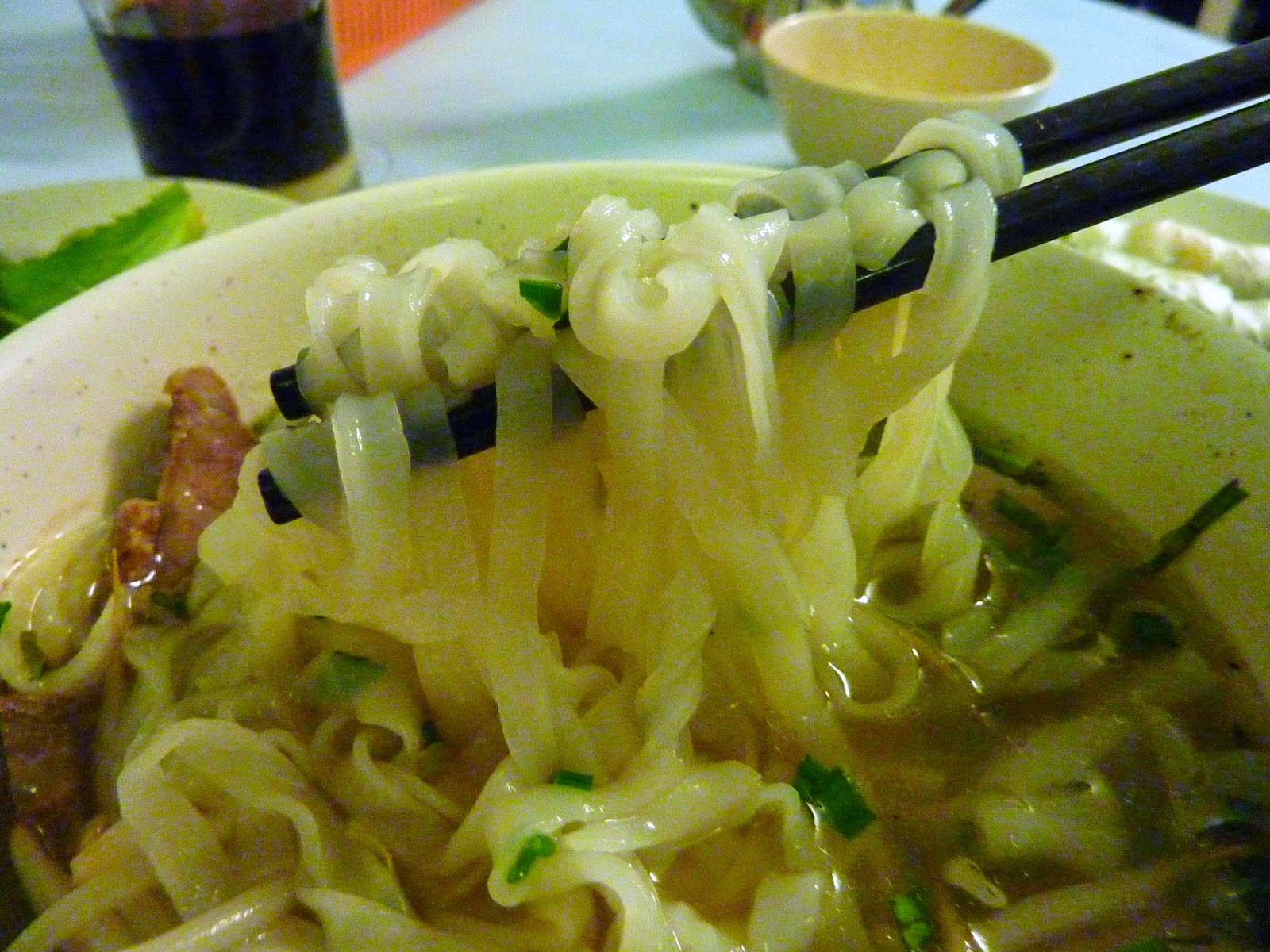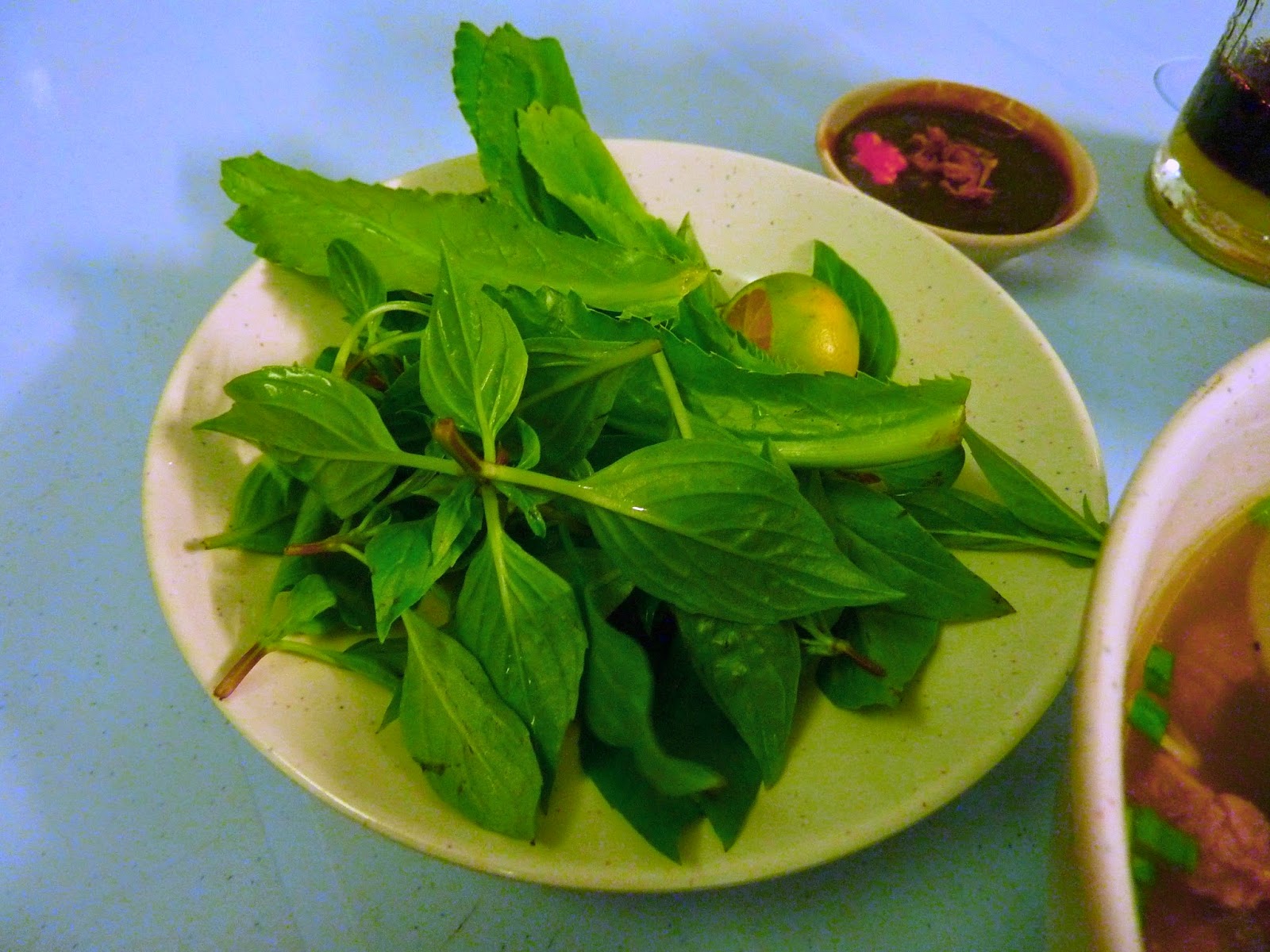Despite Vietnam being a neighboring country, Malaysia has relatively few Vietnamese restaurants compared to the United States. One of the few ones in Penang is Vietnam Quê Hương Tôi (正宗越南小食馆) in Jelutong.
Quê Hương Tôi is located next to the Hyundai car center and somewhat opposite of Peugeot car center. Jalan Jelutong is a bustling road but there are few (if any) legal parking spaces. The best bet is along the lane in front of Peugeot car center; this place is usually empty during night time.
This restaurant is really a down-to-the-earth kind. The dining area is extremely small; it can barely seat 30 people. Nevertheless, there is this homely feeling which draws many ethnic Vietnamese customers especially during dinner hours. Catchy Vietnamese pop songs fill the background to create a lively atmosphere.
The restaurant owner is a very friendly guy. He took the opportunity to recommend the signature dishes here, and explain how each dish is traditionally prepared and consumed. I always appreciate business owners who go an extra mile to delight customers.
Having a considerable hiatus from Vietnamese restaurants in the States, I opted for the first dish which comes into mind when one visits a Vietnamese restaurant: Phở Bò. As an analogy, imagine that there is a Malaysian restaurant on foreign soil; people always think about Nasi Lemak before anything else.
The Phở Bò (牛肉河粉, RM6.50) is basically beef noodle soup. While similar to its Chinese counterpart, the Vietnamese version uses Vietnamese noodles (bánh phở) which feels lighter than Chinese koay teow (粿条). The soup is made from rich meat stock which I love to the very last drop.
As for ingredients, beef takes the center stage here. This bowl contains beef slices, beef tendon and beef balls - all which I enjoy thoroughly. The amount of bean sprouts is a little lacking; I prefer more of these. Chopped onion and scallion (spring onion) are included to give this noodle dish a refreshing feeling. A twist of lime is provided for more appetizing flavor.
The serving size of this dish is "Malaysian size", which is no larger than a standard bowl of noodle at most restaurants. Having acquainted with the supersized beef noodles in the United States, I realize that my perception has been misguided.
Phở Bò is usually eaten with two types of raw vegetables: basil leaves (húng quế, 九层塔) and long coriander (mùi tàu, 假芫荽). Long coriander is not commonly cultivated in Malaysia and have to be specially contracted from farmers.
Popular condiments to go with Phở Bò are chili paste and thick fish sauce. For my first dish here, I decided to enjoy the entire bowl without any condiments. Perhaps next time.
As the owner recommends, I ordered two pieces of Gỏi Cuốn (春卷, RM1.80 each). This Vietnamese hand roll is also known as Nem Cuốn or Bánh Tráng Cuốn depending where you are in Vietnam. Here, the minimum order is two pieces.
Typically, each Gỏi Cuốn consists of prawns, sliced pork, vegetables, bean sprouts and bún (rice vermicelli) wrapped in bánh tráng (rice paper). The skin is thinner and more translucent than the Chinese popiah (薄饼) skin.
Gỏi Cuốn is neither fried nor cooked. The pre-cooked ingredients are wrapped fresh and served at room temperature. Popular dips to go with this side dish are savory fish sauce and nước chấm sauce. Both sauces are provided here.
As for my choice of beverage, it should not be a surprise when I picked Cà Phê Sữa (牛奶咖啡, RM3.30). This popular drink is the unofficial national drink of Vietnam, similar to what Teh Tarik is to Malaysia.
The hot version of this drink uses a metal drip filter (cà phê phin) and a glass below. Originally, the glass is only filled with condensed milk. The drip filter contains coarsely-ground dark-roast coffee, in which hot water is poured over. Water seeps through fine coffee grains while the drip filter sieves the coffee brew from coffee particles.
The coffee is very strong and is pleasantly bitter. The texture of filtered coffee is quite smooth, though there is still some residue left over at the bottom of the glass. The amount of condensed milk is just right to provide the optimal degree of sweetness.
Cà Phê Sữa is only meant for one brew. After that, red tea is poured directly to the glass (not through the metal drip) to serve as the second drink. The philosophy is that unsweetened tea helps to wash off the strong coffee aftertaste.
Although the food that I tried so far sounds interesting, the owner clarifies that this is just the tip of the iceberg. Another recommended choice for my next visit is Bún Thịt Nướng, which is barbecued pork and spring rolls served over cooled noodles. There are non-beef dishes available too.
Address: 56-W, Jalan Jelutong, 11600 Jelutong, Pulau Pinang
Contact: 04-684-9038
Business hours: 10:00am-3:00pm, 5:00pm-10:00pm (Monday-Friday), 9:00am-3:00pm, 5:00pm-10:00pm (Saturday-Sunday), closed on Tuesdays
 Taste
Taste Presentation
Presentation Ambience
Ambience Hospitality
Hospitality Value
Value















now only I know that leaves call long coriander, my house got plant but we call it as “红毛芫茜”(pronoun in Hokkian).
ReplyDeleteThanks for visiting and commenting, Grace! I appreciate this! :-)
DeleteThis plant is quite common worldwide, so it is natural that each language has its own name for the same plant. :-)
Here is the scientific name for it:
http://en.wikipedia.org/wiki/Eryngium_foetidum
Actually, I am looking for the the plant name for quite some time, thanks :)
DeleteYou are welcome! :-)
Delete